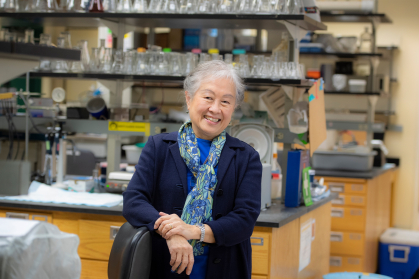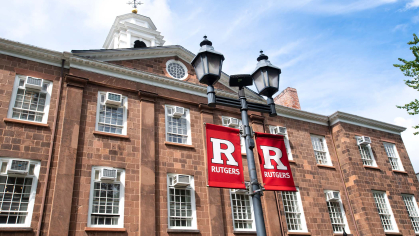Lily Young Appointed Board of Governors Professor of Environmental Sciences

Lily Young, an environmental microbiologist at Rutgers for more than 30 years who is recognized for her research to help prevent pollution and restore the environment, has been appointed as a Board of Governors Professor of Environmental Sciences.
The Distinguished Professor in the School of Environmental and Biological Sciences focuses her research on anaerobic microbes – organisms that can survive and grow in an environment where there is no oxygen and degrade harmful compounds in gasoline and petroleum. These microorganisms have evolved and flourished, and scientists are determining their unique processes and environmental benefits, including curbing climate change.
Earlier this year, Young was elected to the National Academy of Engineering, among the highest professional distinctions bestowed on an engineer. She was among 106 new members within the United States and 18 internationally who were recognized for making outstanding contributions to engineering research, practice and education and for significant contributions to the field of technology, traditional engineering and innovative approaches to engineering education.
Young is on the editorial boards of various scholarly publications, has been awarded more than $20 million in grant funding and honored by some of the leading scientific organizations including the American Society for Microbiology. She is also an American Association for the Advancement of Science Fellow.
The internationally recognized scientist has been asked to speak at prestigious symposia and is on the advisory and oversite committees of agencies such as the National Science Foundation (NSF) and the Environmental Protection Agency (EPA). She reviews grants for the NSF, the Department of Energy, Army Research Office, Sea Grant and the EPA.
At Rutgers-New Brunswick, Young has had a major influence on academic affairs and has held numerous leadership roles, including provost for faculty development and excellence, dean for international programs for the School of Environmental and Biological Science and chair of the Department of Environmental Sciences.
Most of Young’s work has been done through studies in the East River in New York City, the Arthur Kill in New York and New Jersey and other areas with high contamination and where billions of pounds of pollution are released into waterways. Her findings have opened a new approach to environmental restoration and a greater understanding of the novel biochemical mechanisms of the microbes that can degrade pollutants.


